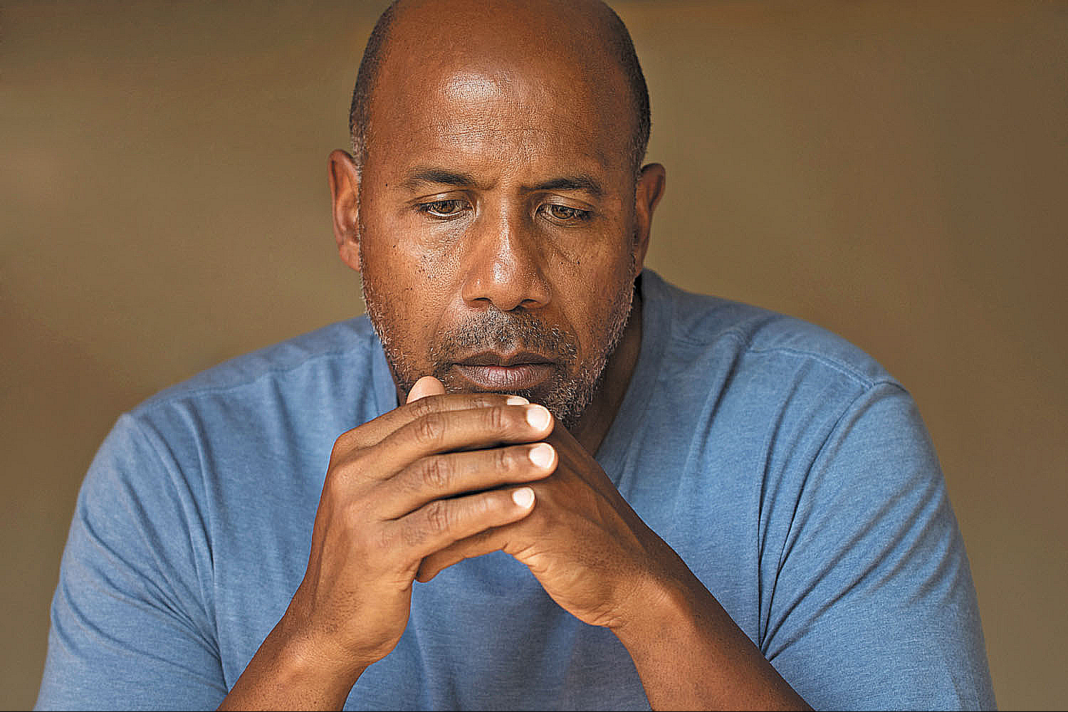Our new normal has caused many to fall into a pattern of worrying. Even before the COVID-19 pandemic, however, numerous people have struggled to cope with their concerns. Unpaid bills, job interviews, aging, medical diagnoses, or even a first date can make you worry. When this reaction becomes excessive, persistent, and spirals out of control, you need to check yourself. “The trigger for generalized anxiety and worry is uncertainty about the future,” says Dr. Michael Stein, Psy.D., a Denver-based licensed clinical psychologist specializing in adults and teens with anxiety and OCD.
Excessive stress about the “what ifs” can lead to insomnia, headaches, stomach issues, and more. Worrying can paralyze and keep you from progressing in your daily life. According to Shawn Achor, a Harvard University researcher, lecturer, and one of the world’s leading experts on happiness, success, and potential, “Adversities, no matter what they are, simply don’t hit us as hard as we think they will. Our fear of consequences is always worse than the consequences themselves.”
So how do you stop worrying?
Experts say chronic worrying is a mental habit you can break. You can actually rewire your brain to woosah! It is possible to take a look at your life from a calm and less frightening perspective, and here are a few tips on how to do so.
Set aside worry time–Choose a day and time for worrying. Sounds strange? Make your scheduled worry time earlier in the day and not close to your bedtime so that it doesn’t keep you up. Plan to worry for about 20 minutes or less, and at the same time of day, this signals your brain to only fret during your designated time. During worry time, you don’t fight or struggle with your thoughts. You clear away your slate, set aside other thoughts, and give total and full attention to your worries. The result is that your worries diminish. At the end of your session with self, you can let go of your stressful feelings and begin to relax. Take a couple of deep breaths, shake off those tensions, and go about your day.
Make sure to select a quiet place where you can be at peace with your thoughts. Studies, including one at Penn State University, found that those who scheduled time to worry showed a significant decrease in anxiety in 2 to 4 weeks — plus they slept better.
Highlight doable worries–List those worries you have control over so that you can be proactive about solving each problem. Do not list hypothetical concerns as you have no control over them. Instead of feeling like you are spiraling out of control, you are breaking down your worries into bite-sized chunks that you can handle.
Interrupt worrying–Take a time out from your worries by keeping your mind busy. Physical activity is one great way to do this. Exercise releases endorphins, which are chemicals produced by the body to relieve stress and pain. Get lost in some form of exercise, whether it be cycling, running, yoga, or dancing, allow yourself to feel all of the sensations your body is experiencing.
Share your worries–Talking about your cares with a trusted friend, relative, support group, or therapist, who won’t judge or criticize you, will help calm your spirit and diffuse anxiety. Keeping concerns to yourself only cause them to build up until they seem overwhelming. Voicing them out loud can often help you make sense of what you’re feeling and put things in perspective. Sharing your fears can also help bring about solutions.
Try journaling–Transferring worries out of your head and onto paper is a powerful and effective way to get out what you feel. A journal may be all you need to sort out your thoughts and get a clear picture of how to work through your woes. Take a moment each day to write in your journal and focus on addressing each concern. According to a University of Chicago study published in the journal Science, journaling will help you gain a more balanced perspective.
Swap worry for gratitude–According to scientists, feeling grateful makes you worry less. Gratitude allows you to immerse yourself in positivity. Research has shown that positive thoughts and feelings have a nourishing and supportive effect on our minds. Practicing gratitude also doesn’t mean you have to feel grateful for everything all the time. It’s all about connecting with an authentic appreciation for the good things that surround you.











